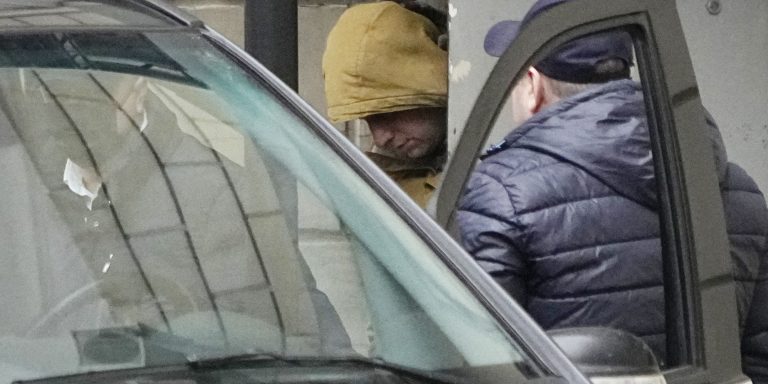INTELBRIEF
April 14, 2023
IntelBrief: Evan Gershkovich and the Rise of Hostage Diplomacy

Bottom Line Up Front
- The U.S. Department of State formally designated American journalist Evan Gershkovich as a wrongful detainee on April 10, nearly two weeks after he was detained and charged – without evidence – of spying on behalf of the United States by Russia.
- Speaking earlier this week, Roger Carstens, the special presidential envoy for hostage affairs, declared that following Gershkovich’s arrest in Russia, “We’re bringing the whole power of the U.S. government into this negotiation.”
- More broadly, Gershkovich’s detention sheds light on the growing practice of “hostage diplomacy,” in which states unlawfully detain foreign nationals within their criminal justice systems for foreign policy leverage.
- As American citizens — alongside nationals from Belgium, Canada, the United Kingdom, and a range of other countries — get caught up in this coercive form of diplomacy, the need for deterrence and multilateral responses will only increase.
The U.S. Department of State formally designated American journalist Evan Gershkovich as a wrongful detainee on April 10, nearly two weeks after he was detained and charged – without evidence – of spying on behalf of the United States by Russia. The Wall Street Journal and the White House have categorically denied the charges against the reporter, while bipartisan leaders of the U.S. Senate have called for Gershkovich’s immediate release and for the charges against him to be dropped. If convicted, Gershkovich faces up to 20 years in prison.
Unlike the thousands of lawful overseas detention cases overseen by the State Department’s Bureau of Consular Affairs, a wrongful detention designation shifts the case to the department’s Office of the Special Presidential Envoy for Hostage Affairs, an entity mandated to advocate for the release of Americans held captive abroad. The designation also enables the State Department to support the detainee through regular visitations, engagements with the host country, monitoring relevant intelligence streams, and applying pressure – international, diplomatic, and media – to secure the prisoner’s release. Speaking earlier this week, Roger Carstens, the special presidential envoy for hostage affairs, declared that following Gershkovich’s arrest in Russia, “We’re bringing the whole power of the U.S. government into this negotiation.” Alongside the need for a strong international response, as noted above, there is an important role for partnerships, including with the private sector, the media, and civil society more broadly.
More broadly, Gershkovich’s detention sheds light on the growing practice of “hostage diplomacy,” in which states unlawfully detain foreign nationals within their criminal justice systems for foreign policy leverage. Research from the James W. Foley Legacy Foundation shows state actors have surpassed terrorist groups and other non-state actors in detaining Americans abroad. The Foley Foundation counts 54 Americans (both U.S. nationals and permanent residents) wrongfully detained in 15 countries abroad today. Speaking during the Global Security Forum, Diane Foley noted the importance of collaboration, stating: "We need partnerships not only with governments but certainly with the media." This speaks to the need for a whole-of-society approach focused on collaboration across sectors. Further emphasizing this point, Director of the FBI's Hostage Recovery Fusion Cell Christopher O'Leary observed, "Partnership works, and it's the way we'll get things done."
Prior to Gershkovich, no American journalist had been detained on espionage charges in Russia since the end of the Cold War. His arrest has renewed concerns about the threat to international press freedoms in the country, after Russia already put significant pressure on its few remaining independent domestic media outlets at the outset of its full-scale invasion of Ukraine last spring. Since the start of Russia’s war in Ukraine, repression against journalists has intensified, perhaps demonstrating Moscow’s willingness to go beyond typical measures to inflict pain on the West. Gershkovich’s case also highlights the unresolved captivities of at least four other Americans detained in the country, including former U.S. marine Paul Whelan. It also recalls the recent case of Britney Griner – the American basketball player wrongfully detained in Russia before being released in exchange for a Russian arms dealer named Viktor Bout who was being held in U.S. custody.
A conversation at the 2023 Global Security Forum explored the practice of hostage-taking by both state and non-state actors, noting how global power shifts today create an enormous challenge to those advocating for hostages and wrongful detainees. Specifically, the rise in so-called “hostage diplomacy” is taking place as U.S. adversaries attempt to assert dominance and recalibrate the international order that arose after the Second World War. Malign actors will have much to gain in this new environment, including those involved in the cruel practice of hostage-taking. Within this evolving geopolitical climate, the U.S. government must ensure its hostage recovery enterprise is equipped for the years ahead. As American citizens — alongside nationals from Belgium, Canada, the United Kingdom, and a range of other countries — get caught up in this coercive form of diplomacy, the need for deterrence and multilateral responses will only increase. The safe and swift return of all captives must lie at the heart of any national and international response and an effective response will leverage all of these tools.